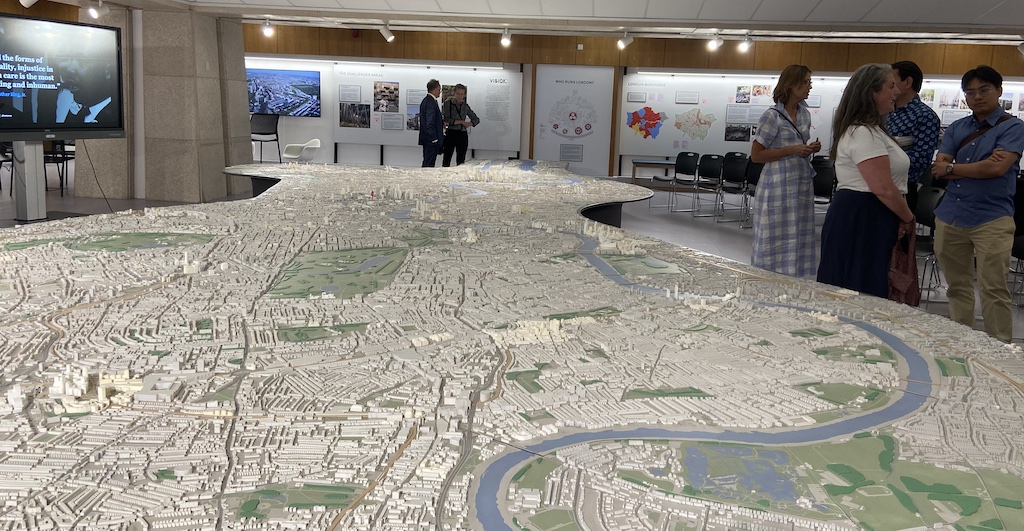Post
A healthier and fairer London is everyone’s business says Professor Fenton at London Society talk
14 Jun 2023
In 1886, Charles Booth, a wealthy ship owner began a major survey of London life and work. He wanted to refute claims that a quarter of London’s population was living in poverty. Booth could not believe that London, one of the wealthiest cities in the world, could be the place where many people were homeless, suffering ill health, and starving on the streets.
But the results were far worse than he believed possible. His findings, entitled Life and Labour of the People, found that a third of London’s populace, were living below the poverty, in sub-standard housing.
On 13 June 2023, a sweltering summer’s evening, Professor Kevin Fenton, public health director for London, gave an impassioned talk at NLA’s new home at the London Centre, just a stone’s throw from the Guildhall. Fenton’s topic, close to his heart was on creating a healthier and fairer London.
Not unlike Charles Booth’s study from over a century ago, Fenton observed that London is a city of contrasts. In the 19th century, the killer disease was cholera, and today, we are still in shock at the long-term effects of the Covid-19 pandemic.
The capital’s health is everyone’s business, believes Fenton and part of the solution is harnessing new partnerships and ways of working for wellbeing.
During the talk, the statistics revealed were shocking. Nearly one in five Londoners report they are struggling financially, and this is not helped by an increase in rents, with the average private rent for all tenants in London increasing by 4.3%, according to ONS data.
In a city where there are an estimated 30,000 long-term, empty homes, 1,700 people are sleeping rough in London for the first time, reported the Combined Homelessness and Information Network (CHAIN). In the capital, two in five children are living in poverty.
Back in the day, Booth also reported on the high numbers of homelessness, with people sleeping in doorways or in public parks.
For Booth, housing conditions and poverty were closely linked. Fenton outlined the areas that needed to be addressed, including housing, low pay, childcare and the environment. On the latter, Fenton noted that air pollution is a major public health challenge, with levels often exceeding legal limits. The comparisons between Victorian London and today are too close for comfort.
So, what needs to be done? What are the solutions? Fenton believes the way forward is in new partnerships and technologies, in working towards health equity.
There was spirited debate from the audience, touching on many issues. Clare Delmar, chair of the debate, questioned the role of private developers. One audience member asked about the role of local councils. As a councillor herself, she reported that the number one query from people coming to see her was about damp and mould in their homes. It’s a wide-scale problem, with Hackney Council reporting that the number of damp and mould reports it received has more than tripled in a year.
Social media on the night was buzzing. Rena Amin tweeted: “London as a city of contrasts needs solutions that are diverse & we @NeasdenTemple would welcome you to explore these solutions. Let’s talk.”
MyFairLondon appreciated Fenton’s take on the pandemic - “how unequally Covid hit London’s people, but doesn’t mention social class differences, surely the dominant driving factor behind health inequalities – how resources are distributed between people. We need to re-shape society to make a healthier society.”
There were many discussion points on what needs to be done – and obviously money is a huge factor, breaking down into the haves and have nots. Everyone needs to work together – from government to local council to private developers – if the entire London population is to achieve a fairer and more equitable healthy society.
Check out our events programme - come along!
